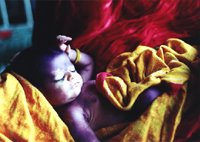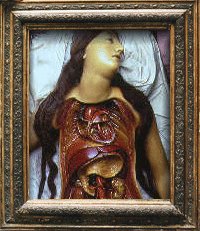This from the Enlightenment ethusiasts, the
Institute of Ideas.
TABOOS
By Carl Djerassi
Saturday 18 March
Early matinee from 2.30pm to 4.40pm
Debate from at 5.00pm to 6.30pm
Tickets for Matinee and debate £19/ £17 concessions
Tickets for debate only £9/ £7 concessions
New End Theatre Box office - 0870 033 2733
Terms such as 'marriage', 'family', and 'parent' used to have firm denotations. They were the rock on which many of our cultural values rested. Terms such as 'embryo', 'baby', or 'twin' were also considered unambiguous. But recently, all these terms have become destabilized, their meanings blurred, their range extended. Some would blame in vitro fertilization technology for these developments, but in fact major social and cultural changes, primarily in the USA and Europe, were more responsible for the monumental shift that has caused so much fear and antagonism, especiallyamong the ever increasingly strident fundamentalists in the USA. So why not write a play about a situation where 'family' and 'parent' have assumeddisturbingly fuzzy meanings? TABOOS may be seen as a classic tale of scientific progress. A scientific innovation is greeted with outrage from traditional moralists, who predict the collapse of society if the innovation is allowed. But the secular lawpermits the innovation (because there are deserving cases) and society learns to cope, until the next challenge when the whole process is repeated. TABOOS cleverly raises as many questions as it answers. Are not the fundamentalist Christians on uncertain ground basing themselves on a holy book full of unusual family set-ups and a messiah who is the product of a surrogate birth? Will not the lawyers be the main beneficiaries of the legal complications of alternative families? What does a child in a lesbian family call its two 'mothers'? Above all, is it science that is pushing these issues forward, or is it society insisting scientists come up with solutions to questions that traditional social institutions can no longer answer?










